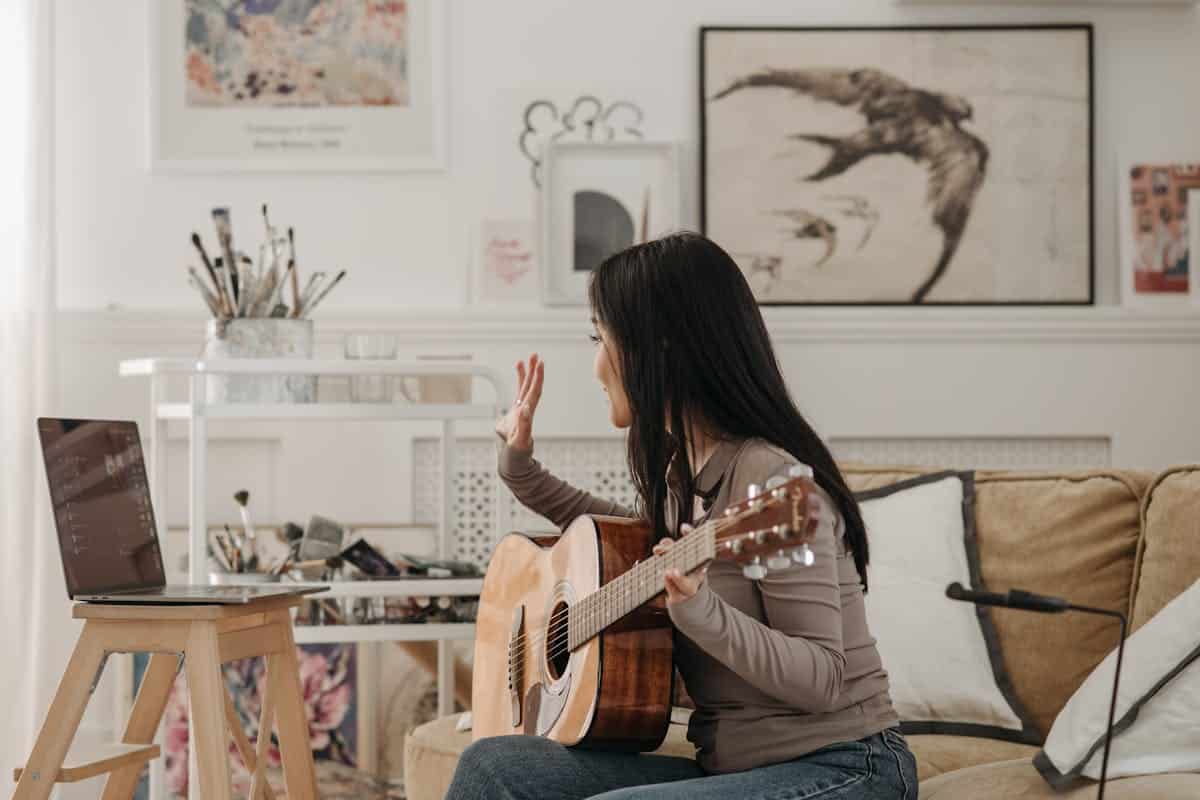Table of Contents
The first time someone picks up a guitar, it’s rarely graceful. Fingers ache, chords buzz, and rhythm feels like a moving target. But there’s something magnetic about it anyway, something that draws people back to try again. Learning guitar is one of those experiences that slowly reshapes a person from the inside out. It strengthens focus, rewires the brain, and reconnects people with the kind of fulfillment that’s become harder to find in a fast, digital world. Whether you’re young, retired, or somewhere in between, there’s a reason so many people describe learning guitar as life-changing, and it’s not just because it sounds cool.
Finding Freedom In The Struggle
The process of learning guitar mirrors real life more than most hobbies. It’s humbling, frustrating, and occasionally euphoric. At first, your fingertips feel like they’re staging a revolt. But what’s quietly happening underneath the discomfort is remarkable. Scientists have shown that consistent musical practice strengthens neural pathways that control coordination, memory, and emotional regulation. Over time, those rewired circuits can actually enhance how you learn in other areas, too. It’s the kind of training that builds patience without you realizing it.
For beginners, finding the right guitar for sale is easy whether online or in store, but what really matters is finding one that feels right in your hands. That physical connection to an instrument becomes emotional, almost personal. It’s one of the few forms of effort where frustration and joy live side by side, where you can measure progress in calluses and muscle memory. There’s a sense of grit that builds every time you push through another awkward chord transition, and it starts bleeding into the rest of your life.
The Science Of Musical Focus
There’s something meditative about practicing guitar that doesn’t feel like traditional mindfulness. It’s less about emptying your thoughts and more about channeling them. Your brain switches into what neuroscientists call a flow state, a rare zone where concentration, skill, and satisfaction line up perfectly. For a few minutes, all the background noise fades, and you’re just there with the strings.
Studies from cognitive neuroscience labs have found that this kind of musical focus lights up both hemispheres of the brain. The left side manages logic and structure while the right side fuels creativity and emotional response. Together, they create a balanced, deeply rewarding mental state. It’s why so many guitarists describe feeling grounded after they play. The instrument doesn’t just entertain, it recalibrates.
What Bruce Springsteen Got Right
Few musicians embody the soul of the guitar more than Bruce Springsteen. He once said that every note he played was about finding truth through sound. That’s part of why guitarists connect so strongly to their craft, it’s an instrument of honesty. You can’t fake feeling in a solo, and that authenticity spills into everyday life.
When you learn to play, you start noticing details differently. You hear rhythm in conversation, see patterns in noise, and feel energy in silence. There’s an emotional intelligence that builds with time, the same kind that powers great leaders and artists alike. Springsteen’s kind of storytelling through strings reminds people that discipline and heart aren’t separate—they’re two halves of the same chord.
A Social Bond Unlike Anything Else
Even though practice can feel solitary, guitar naturally pulls people together. It bridges generations and backgrounds in a way that’s rare anymore. A 16-year-old learning power chords can instantly connect with a 60-year-old who grew up playing Dylan songs by ear. That shared language creates a sense of belonging without needing much conversation.
Performing, even in front of a small audience or just for family, triggers the release of dopamine, the brain’s reward chemical. That chemical boost has been linked to improved confidence and reduced anxiety. It’s why so many people find that learning guitar quietly improves how they show up in social and professional settings. Music trains emotional agility, it teaches you how to listen, how to anticipate, how to respond.
How Guitar Keeps You Young
There’s growing research showing that learning guitar later in life can actually protect cognitive health. It challenges memory, fine motor skills, and concentration all at once—areas that naturally decline with age. But consistent practice helps keep neural networks flexible. That’s not just a nice theory; it’s something people can feel.
Picking up the guitar after decades away from instruments can feel intimidating, but it’s also freeing. Unlike exercise or diet routines, it doesn’t feel like maintenance—it feels like discovery. And it doesn’t hurt that it brings back a sense of play that adults often lose. You start with small goals: nailing that first barre chord, finally learning that tricky intro, and before long, you’re rewiring your brain while simply having fun.
A Sound That Stays With You
Learning guitar isn’t about chasing perfection. It’s about building a lifelong relationship with sound, rhythm, and focus. It changes how you process the world around you, turning noise into texture and frustration into growth. It’s not therapy in the clinical sense, but it can be deeply healing all the same.
Even if you never play for anyone but yourself, those quiet moments between your fingers and the strings have value. They reconnect you to a kind of authenticity that modern life tends to drown out. Every small win—every clean chord, every riff that finally clicks, becomes proof that progress doesn’t need to be fast to be meaningful.
The guitar has always been more than an instrument. It’s a teacher, a stress reliever, and a quiet bridge back to creativity. Learning to play reminds people that mastery isn’t the point, connection is. Each note is its own small act of focus and freedom, proof that discipline and joy can live in the same space. Once you start, you realize the music was never just in the strings. It was in you the whole time.

